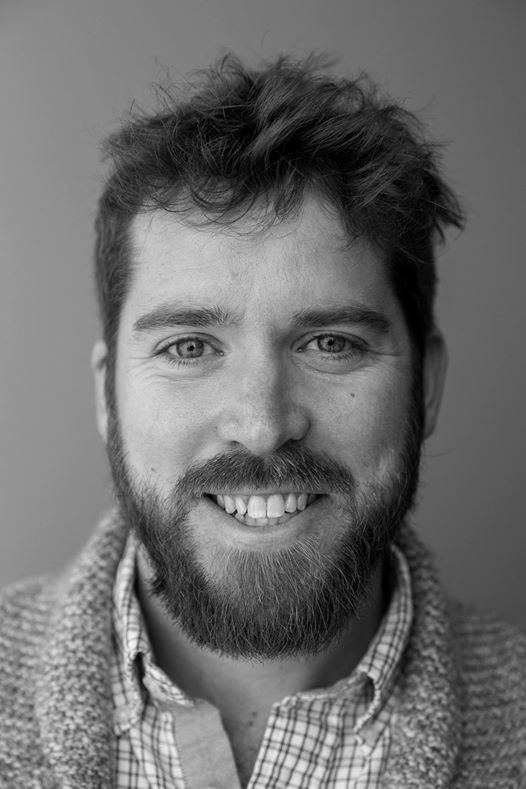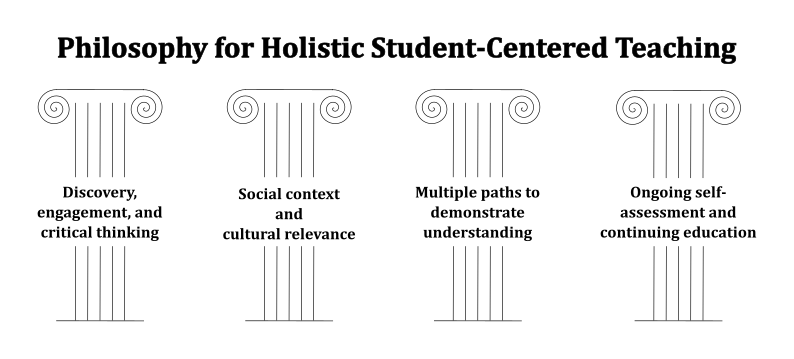 Photo by Colin M. Gould
Photo by Colin M. Gould

- Discovery, engagement, and critical thinking – Presenting information accurately is not enough to build intuition. Lectures need to include energy, narrative, and suspense. To understand complex topics, students need an opportunity to probe the ideas themselves and to be invested in the outcome.
- Social context and cultural relevance – Mathematics can feel sterile and alien at times, but only when it is studied in a vacuum. Understanding the historical and social context of the development of mathematics helps us to appreciate the theory that we often take for granted. Culturally relevant computational examples anchor these ideas, and practical projects help to develop sophistication and creativity.
- Multiple paths to demonstrate understanding – The ability to understand new ideas is heavily influenced by factors beyond the direct intellectual challenge of the material. Mental and emotional health, family and financial responsibilities, and the high stakes of educational outcomes can all be indirect barriers to building mathematical understanding and intuition. To reduce these challenges, courses need to be flexible, non-judgmental, non-punitive, and offer multiple routes for students to demonstrate their understanding.
- Ongoing self-assessment and continuing education – Education is heavily influenced by the relationship between the teacher and the students. In order to persistently improve, I need to consistently reevaluate my philosophy and implementation. This is aided by self-assessment, continuous 360° feedback from students, coaching from trusted mentors, and continuing education from experts and education researchers.
Current courses
Currently not teaching
Summer 2022
Past courses
ECE 353: Introduction to Probability and Random Signals
Winter 2022
Department of Electrical Engineering and Computer Science, Oregon State University
Syllabus
See Canvas for course materials
Topics in Signal Processing
Summer 2017
Winter 2018
Department of Electrical Engineering, University of Paderborn
Calculus for Physical Scientists III
Spring 2015
Department of Mathematics, Colorado State University
Mathematical Algorithms in MATLAB/Maple
Spring 2014
Spring 2016
Department of Mathematics, Colorado State University
Calculus for Physical Scientists I
Fall 2011
Spring 2013
Department of Mathematics, Colorado State University